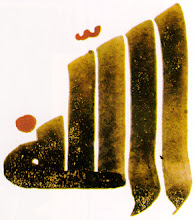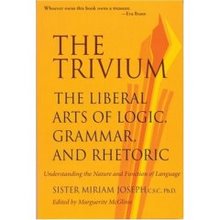LODI, Calif. — Like dozens of other Pakistani-American girls here, Hajra Bibi stopped attending the local public school when she reached puberty, and began studying at home.

David Kadlubowski for The New York Times
Karima, right, with her sisters, Kiram, 8, and Kadhima, 14, playing with yo-yos in a study break at their Phoenix home.
Her family wanted her to clean and cook for her male relatives, and had also worried that other American children would mock both her Muslim religion and her traditional clothes.
“Some men don’t like it when you wear American clothes — they don’t think it is a good thing for girls,” said Miss Bibi, 17, now studying at the 12th-grade level in this agricultural center some 70 miles east of San Francisco. “You have to be respectable.” Continue the article...
And here is my response... I was delighted to find a New York Times article that was emailed to me yesterday; entitled “Many Muslims Turn to Home Schooling.” As a homeschooler and a Muslim I was looking forward to the insight and depth that normally accompanies N.Y. Times articles. But unfortunately that was not the case; instead I was appalled by the blatant “spin” that was prevalent throughout the entire article.
If asked, home schoolers—be they Muslim or other--would cite educational freedoms, efficiency, and time management as some of the main reasons for home schooling. There is no denying that within the Muslim community religion does serve to influence a parent’s decision to home school. For the most part that decision is not undertaken to radicalize, isolate or render a child socially retarded, but, rather to shield them from the current trend of moral decline, erosion of societal values, increased violence, and physical/psychological abuses that have become an unfortunate reality of many of our public education systems.
Truly effective home schooling develops the minds of thinking and articulate students who are able to process facts into arguments and communicate those arguments clearly and persuasively. Therefore, for education to be effective, it must go beyond merely conveying facts. One of the goals of home schooling is to transcend the myopic approach of adhering strictly to academic issues and systematic testing that is based solely upon compulsory educational standards. Returning to the ‘primary objective’ of education is what motivates home schooling parents. And that primary objective is to provide the tools and opportunity for students to develop into complete human beings who can engage the world with intelligence, insight, integrity, virtue and compassion in a safe and wholesome environment.
It is not until the nearly the end of the article, that mention is made of any educational achievements for Muslims who have “Turned to Home Schooling.” The article identifies a Chinese Muslim immigrant family who chose to home school, and whose son is currently in the process of applying to medical school.
The article makes mention of a few of the reasons why Muslims home school, such as the parent who paid a visit to a kindergarten were each pupil had assembled a scrapbook titled “Why I like Pigs,” or the young Pakistani-American, Hajra Bibi, who as the article states, “like dozens of other Pakistani-American girls,” are forced to stop “attending the local public school when she reached puberty, and began studying at home.” And the reason for this, “Her family wanted her to clean and cook for her male relatives...” This is the same senseless rhetoric, which Maury Schaffer spewed on 60 minutes, when he labeled a beard worn by Muslim men as radical facial hair, and interpreted Muslim males wearing traditional white tunics as sign of their willingness to commit an act of martyrdom.
If the Bibi’s have chosen to home school because they are in need of a "domestic servant," then it should be clearly stated that is has no basis in Islam and is a cultural practice prevalent among rural South Asian immigrants.
Such an action contradicts the Prophetic tradition that addresses the idea of education—Prophetic traditions are the secondary source of Islamic law after the Qur'an--which encourages the pursuit of knowledge by both genders. The tradition states, “Seeking knowledge is an obligation for every Muslim (male and female).” The correlation that the author draws between Muslims home schooling and this family’s choice to remove their daughter from school and subsequent “banishment to housework and cooking" at the age puberty, is not only a gross misrepresentation, but is a dangerous stereotyping that seeks to further alienate and portray all Muslims in a an unfavorable light.
The false portrayal of Muslim home schoolers continues in the article, “Many Muslim parents contacted for this article were reluctant to talk, saying Muslim home-schoolers were often portrayed as religious extremists. That view is partly fueled by the fact that Adam Gadahn, an American-born spokesman for Al Qaeda, was home-schooled in rural California.”
Yes, Adan Gadahn was home schooled, but he did not convert to Islam until the age of 17, an age when most homeschooled students have completed their studies and are well into preparing for their college application process. So, what does a Jewish kid born in Oregon, whose Grandfather was a prominent surgeon and on the Board of Directors of the Anti-Defamation League; and whose paternal grandmother, Agnes Branch, was an editor for The Chronicle Christian Newspaper, who played Little League baseball and participated in Christian home school support groups, have to do with the reluctance of Muslims to speak about home schooling, or have any relevance, connection or correlation to this article? The answer is clear: absolutely nothing! It is also interesting that the three hyperlinks in the article—which are all related to Adam Gadahn—are irrelevant and serve no purpose addressing the topic of Muslim home schooing. The first hyperlink is for Al-Qaeda, the second is for state of California and the third the is for the F.B.I. We can understand the second link, as a Mr. Gadahn was home schooled in California and some of the families interviewed in the article reside in California. But what is the logic of adding a hyperlink for Al-Qaeda and the F.B.I. in an article that is supposed to be about Muslims turning to home schooling? Again, the answer is clear: absolutely nothing!
The article stated that, “Parents who home-school tend to be converts (to Islam),” yet throughout the entire article a single reference is made to a convert with regard to Muslim home schooling. Asking Muslims who are either under-qualified or not qualified at all to represent and convey an Islamic perspective, is tactic that has consistently been used in the media’s approach towards, “understanding Islam.”
The rhetoric builds to a climax at the end of article:
- “In some cases, home-schooling is used primarily as a way to isolate girls like Miss Bibi, the Pakistani-American here in Lodi (California).”
- “Their families want them to retain their culture and not become Americanized,”
- “As soon as they finish their schooling, the girls are married off, often to cousins brought in from their families’ old villages.”
- “Aishah Bashir, now an 18-year-old Independent School student, was sent back to Pakistan when she was 12 and stayed till she was 16. She had no education there.”
The article finishes by conjuring up an image of an oppressed, coerced and reluctant girl who is: “Asked about home schooling, she said it was the best choice. But she admitted that the choice was not hers and, asked if she would home-school her own daughter, stared mutely at the floor. Finally she said quietly: “When I have a daughter, I want her to learn more than me. I want her to be more educated.”
Anyone who knows anything about Islam understands that “staring mutely at the floor” is known as iqrar. A term in Islamic jurisprudence, which is an act--to stabilize or to accommodate something which is fluctuating between acknowledgment and denial and, it is a form of evidence in any given matter.
As a journalist it is incumbent upon one to collect and confirm unbiased information and subjectively report on the reality of the issue at hand. Sensationalism in a time of heightened polarization and a perceived “us vs. them,” is not only unhealthy, but dangerous and serves to only exacerbate the current state of misrepresentation and prejudice between cultures.
 by: Foundation for Science Technology and Civilisation.
by: Foundation for Science Technology and Civilisation. 







